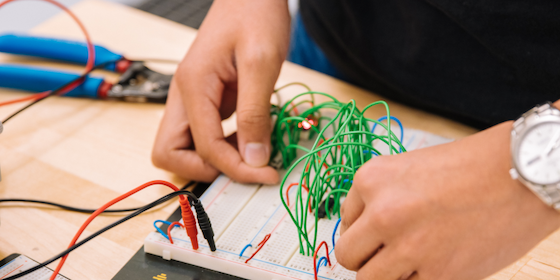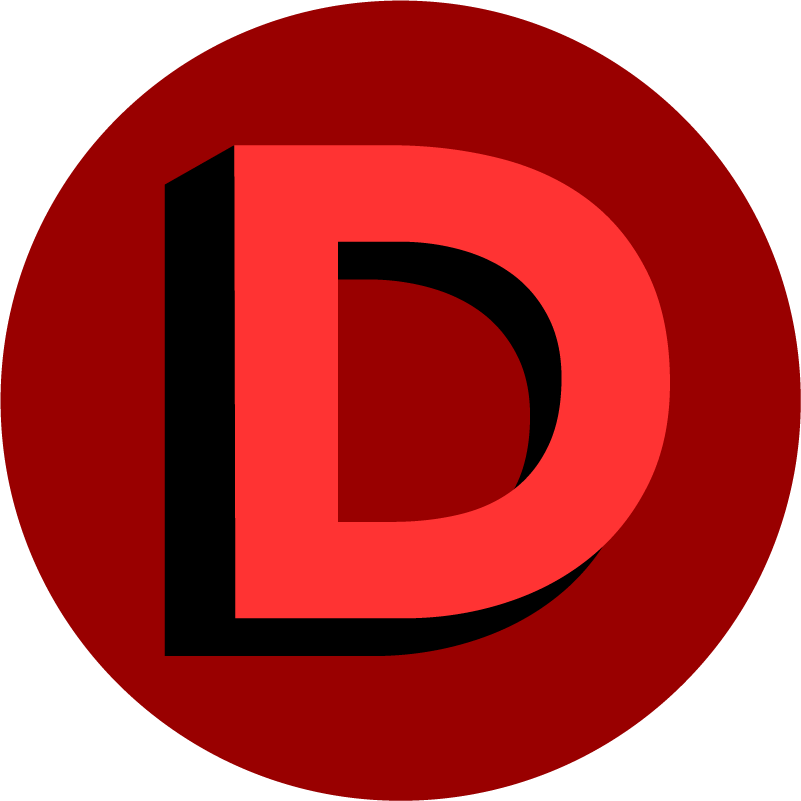Patrick Green was on the Digication Scholars Conversations
Life is a remarkable journey filled with countless opportunities for growth, learning, and self-discovery. As we navigate different twists and turns, we embark on a continuous and evolving learning odyssey, discovering new aspects of ourselves and the world around us because there’s no end to learning and development.
In our Digication Scholars Conversations podcast, we embarked on a captivating voyage inspired by two incredible stories of Dr. Patrick Green, the Executive and founding Director of the Center for Engaged Learning, Teaching, & Scholarship, and a Clinical Assistant Professor at Loyola University Chicago. We explored the essence of active learning and how it fuels our pursuit of knowledge, personal development, and a deeper understanding of ourselves.
The Power of Knowledge

In our conversation with Patrick, we witness the transformative power of knowledge and how experiential learning, ePortfolio programs, and technology enhance our ability to unlock the doors to endless possibilities. Knowledge is the foundation upon which learning is built. It empowers us to dream, imagine, and envision a world beyond our limitations.
Speaking on learning portfolios, Patrick emphasized that technology will continue to evolve, and so will its impact on education. Hence, educators need to encourage embedding the practice into the school curriculum.
ePortfolio is a high-impact practice that contributes to deep learning, and it is an opportunity for students to bring their knowledge to life and make it visible. Students will also be opportune to use evidenced-based learning and critically reflect on it.
What better way can a student make meaning with their education? Active learning enables them to be more practical, name their knowledge, and link what they learn to the larger world.
The technology involved in the learning ePortfolio, a remarkable tool in the ongoing process of Odyssey learning, makes it both a process and a product. This means the learning portfolio can become a showcase portfolio where mentors, investors, or employers can see the value of a student through their portfolios.
“The real magic in life is always in the process... Patrick Green”
Learning happens when people can feel, think, and reflect critically – and one of the ways students can demonstrate that is through the elements, such as audio, visuals, arts, results of their research, and other artifacts embedded in their digital portfolios. Our conversation with Patrick highlights how knowledge empowers individuals, sparking curiosity, creativity, and a desire to make a positive impact.
Remember to explore Patrick Green's e-Portfolio too.
Combining cognitive and meta-cognitive thinking and feeling makes learning more practical and not confined to formal education alone; it permeates every aspect of our lives. According to Patrick, whether we seek knowledge through books, experiences, or the wisdom of others, our thirst for learning is insatiable. Therefore, having one foot in the classroom and the other in the social community puts him in the right position to help more people. The conversation further points out that every step we take on our journey to knowing brings us closer to uncovering our true potential and contributing meaningfully to the world.
"Although we are in a gratification society where people want the easy way out, most people aim for the product and not the process, but the real magic in life is always in the process; that is where the building blocks are solidly laid."
The Journey of Self-Discovery
“An ePortfolio is like a students’ museum, and they are the curator... Patrick Green”
Students curate everything in their portfolios, and even though educators may guide them a little, the students are the ones who are fully in control and make meaning of their learning through a reflective process.
Through deep learning, we embark on a profound journey of self-discovery. As we delve into the depths of our being, we uncover hidden passions, strengths, and vulnerabilities that make us uniquely human.
When people see a student’s portfolio, they can quickly relate and resonate with them through the meaning they give all the artifacts in their digital portfolios. Everything is named and labeled, and there’s a meaning attached to it. Patrick suggests that any student who can build a portfolio must have passed through a powerful learning and reflective process.
We further examined how self-discovery, the continuous unfolding of our understanding in Odyssey learning, is a critical part of mastery and allows us to understand better our individualized selves, a product created by our environment, upbringing, beliefs, passion, decision-making process, goals, and life mission.
Humans never stop learning, and a portfolio showing all our processes tells that we have a growth mindset and have not reached the finish line – we are still open to new experiences and opportunities.
The journey of self-discovery is not always easy. It requires introspection, self-awareness, and a willingness to confront our fears and insecurities. However, the rewards are boundless, as self-discovery fosters a deep sense of acceptance, self-love, and the courage to embrace our true selves.
ePortfolio as a tool enhances our experiences throughout the journey. It puts people ahead of their pairs because they’re equipped with practical experiences from working with a portfolio. Through this journey, we become better equipped to navigate life’s challenges and forge a path of purpose and fulfillment.
Documenting the Learning Odyssey
As we explore different aspects of learning, documenting our experiences becomes invaluable. Keeping a journal or creating a digital diary allows us to reflect on the lessons we’ve learned, the insights gained, and the personal growth achieved. It becomes a treasure trove of knowledge, capturing the essence of our journey and reminding us of the milestones we’ve achieved along the way.
Many people are just coming into contact with ePortfolio, experiential learning, and community work as a learning process. Sharing our learning with others can inspire and ignite a thirst for knowledge and self-discovery in them.
Community-based learning, or service learning, is a powerful form of teaching and learning. It involves engaging students in community work, either through direct service or working on community projects. The experience allows students to connect their actions to their studies and reflect on their impact. It emphasizes both student learning and addressing community priorities. Community members become co-educators, bringing their wisdom and experience to the educational process.
This type of learning is considered high-impact because it promotes deep learning, transfer of knowledge, and integration over time. Critical reflection is vital in community-based learning, and portfolios are ideal for fostering this reflection. Community-based learning aims to create meaningful connections between students, higher education, and the community, enabling students to explore learning and find purpose in their contributions to society.
Through podcasts, blogs, vlogs, or even simple conversations, we can become catalysts for positive change in the lives of those around us – just like we are doing through this conversation.
Finally, Experiential learning, a core component of lifelong Odyssey learning, is an extraordinary voyage that never ends throughout our lives. It is an exciting journey that entwines the pursuit of knowledge and self-discovery, leading us toward personal growth, fulfillment, and a deep understanding of our purpose. It is also promising that we can leave a complete record of our process for others to learn from. As we navigate this path, we enrich our lives and contribute to humanity's collective wisdom.
Hear more from Patrick Green and get the full details.
Don’t miss any episode of the Digication Scholars Conversations podcast.
